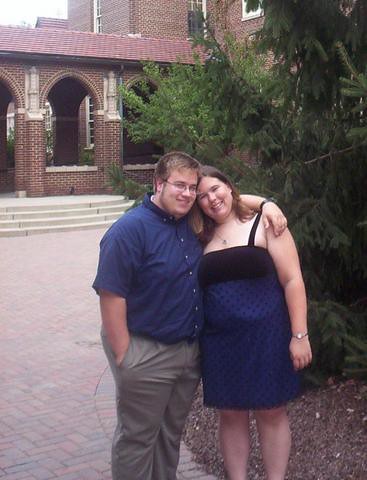What exactly are we doing with this term, postmodern? On of the most humbling thing that I am learning at seminary is that with a few, quite rare, exceptions intelectuals have a habit of retracing old ground with new language. With this thought in mind, I present this article from The Ooze:
Post-Modern or Neo-Romantic?
The whole postmodern discussion/dialogue/debate is missing an interesting piece of historical context. Look at the below definition of romanticism, which I found on this website for a large French art museum. It makes our current cultural shift appear to be a primer for 21st century Neo Romanticism.
“Artistic and intellectual movement that originated in the late 18th century and stressed strong emotion, imagination, freedom from classical correctness in art forms, and rebellion against social conventions.
Romanticism, attitude or intellectual orientation that characterized many works of literature, painting, music, architecture, criticism, and historiography in Western civilization over a period from the late 18th to the mid-19th century. Romanticism can be seen as a rejection of the precepts of order, calm, harmony, balance, idealization, and rationality that typified Classicism in general and late 18th-century Neoclassicism in particular. It was also to some extent a reaction against the Enlightenment and against 18th-century rationalism and physical materialism in general. Romanticism emphasized the individual, the subjective, the irrational, the imaginative, the personal, the spontaneous, the emotional, the visionary, and the transcendental.
Among the characteristic attitudes of Romanticism were the following: a deepened appreciation of the beauties of nature; a general exaltation of emotion over reason and of the senses over intellect; a turning in upon the self and a heightened examination of human personality and its moods and mental potentialities; a preoccupation with the genius, the hero, and the exceptional figure in general, and a focus on his passions and inner struggles; a new view of the artist as a supremely individual creator, whose creative spirit is more important than strict adherence to formal rules and traditional procedures; an emphasis upon imagination as a gateway to transcendent experience and spiritual truth; an obsessive interest in folk culture, national and ethnic cultural origins, and the medieval era; and a predilection for the exotic, the remote, the mysterious, the weird, the occult, the monstrous, the diseased, and even the satanic.” (source.)
“There is nothing new under the sun…”
After reading this, all I have are questions... There are too many parallels to ignore.
1) What impact could transcendentalist writers like Emerson and Thoreau
have on postmodern culture? Should these works be visited in a new light?
2) The definition stated that Romanticism presents "...a deepened appreciation of the beauties of nature; a general exaltation of emotion over reason and of the senses over intellect..." What are some parallels in this context that we could draw between postmodernity and Romanticism?
3) If Romanticism was a general rebellion against the classic and purely rational/intellectual, could one state that the Romantic period was the infancy of what became existentialism, and eventually postmodernism? Why or why not?
4) Cultural shift has been under the microscope of many intellectuals lately. What could Romanticism add to the scope and study of cultural shift?
Subscribe to:
Post Comments (Atom)



1 comment:
Fascinating thoughts dude; I've only skipped the surface of romanticism myself, but what I have read in a few of my classes resonates deeply with me. So much that seems so relevant to our day and age, esspecially as the world gets smaller and smaller, and our very planet is at increasing risks from a variety of places. A deep respect for our world, its people and the transcendent is so timely. The writings of the Dali Lama, Thomas Merton, Henri Nouwen and other 20th century mystics seem to follow this tradition as well, Merton esspecially speaks so powerfully to the postmodern generation (reading his writings I am stunned to remember he lived over 40 years ago), and his spiritual seeking, dialogue with other faiths and deep search for God in solitude and the natural world remind me of the nineteenth century romantics in so many ways.
So much in the world scares me right now, but there is also so much which hints at a real spiritual revolution for our world. I don't know what will happen in the next few years, but I still have great hope.
Peace,
Kieran
Post a Comment